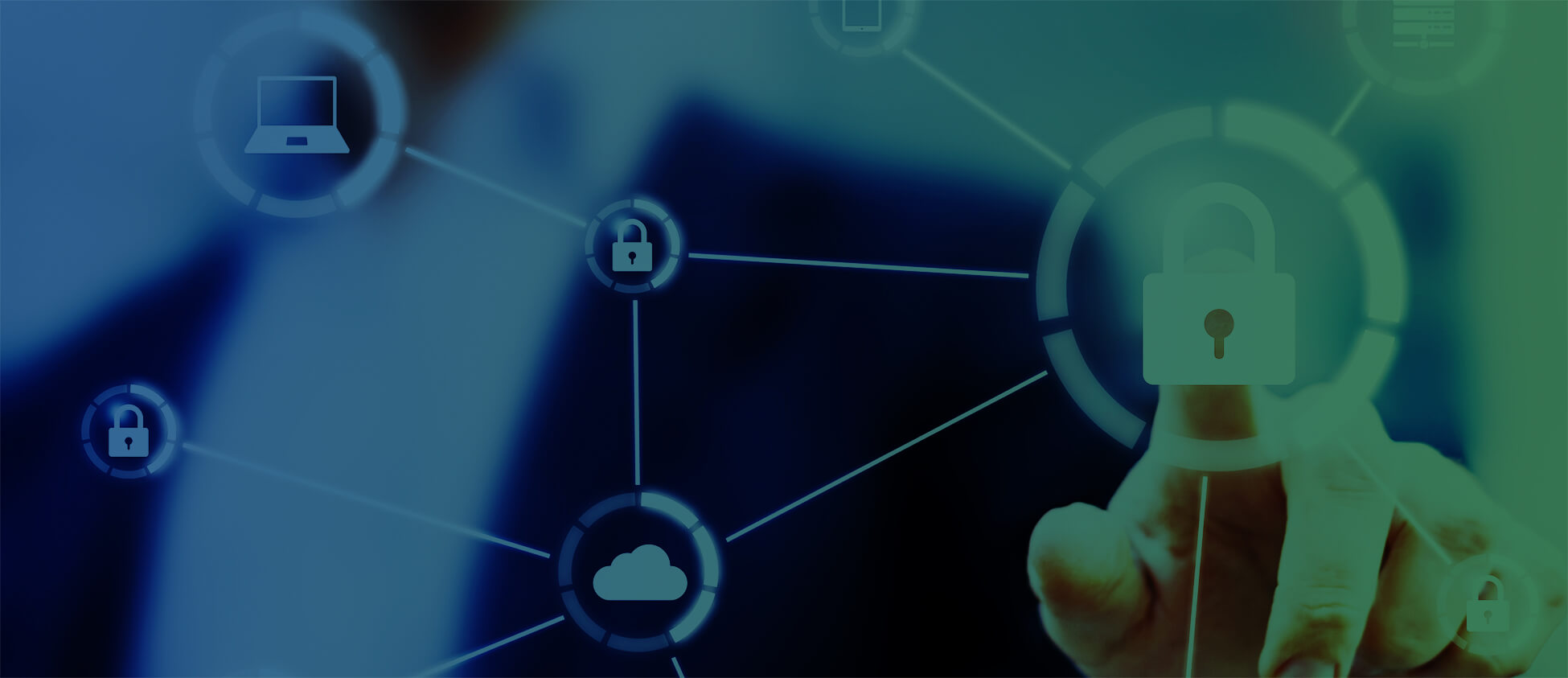10 Cyber Security Mistakes to Avoid in 2020

In these challenging times when remote data-sharing is more important than ever, it is important to practice good cyber security in addition to personal security. Below are ten common mistakes and how to avoid them.
01. Denying you are a target
When it comes to the internet, you cannot anticipate if a breach will directly affect you and may think the chances are low. Remember that cybercriminals are always working on new / updated malware, a website you frequent may get hacked, and your password can be leaked. Prevention and vigilance can go a long way in securing / protecting your connected presence.
02. Clicking on suspicious links
Receiving spam has become a part of everyday life. Sometimes it is just a harmless ad, but other times it may be something more sinister. You could get an email enticing you to click on a suspicious link to claim a prize you have won, or an offer that sounds too good to pass up. Whatever the case, avoid clicking any links as it may infect your computer or mobile device and steal your credentials.
03. Failing to patch
Is your computer nagging you for the umpteenth time to install that pesky update, or perhaps the latest patch for your smartphone’s operating system has been released? You have probably hit the postpone button a few times. You should always keep your devices updated to the latest version of software available. The infamous WannaCry malware spread due to devices not being patched. Microsoft had released patches to close the exploit, but WannaCry spread through organizations that either had not applied the patches or were using older Windows systems that were past their end-of-life.
04. Recycling your passwords
To simplify the arduous task of memorizing scores of passwords, some people resort to recycling. This means that they reuse the same password or passphrase, perhaps varying a character or two. This practice should be avoided. If the bad actors figure out one of your passwords, password reuse allows them to guess the rest of your passwords.
05. Not using 2FA
Two-factor authentication (2FA), also known as multifactor authentication (MFA), is a simple way to add an extra layer of security to your accounts. The most common 2FA method used by popular online services (e.g., Gmail) is a text message with an authentication code sent to your mobile device. If bad actors are missing one piece of the puzzle, they cannot get in until they overcome that hurdle, which might make them look for an easier challenge elsewhere.
06. Ignoring your router setup
When it comes to home interconnectivity, the router is the heart of your home. All your devices with an internet connection are linked to it—your smart TV, smartphone, personal computer, etc. For convenience’s sake, a lot of people just go through the bare necessities when installing their router or keep the default settings pre-configured. You should always take steps to secure your router, so you can browse the internet safely. For more, visit https://www.computerhope.com/issues/ch001289.htm.
07. Using unsecured public Wi-Fi
Most places like cafes, restaurants, and even shops offer complimentary Wi-Fi connections, which is a welcome alternative to using up your precious data plan. As convenient as such free connections might be, you should be careful what you connect to. An unsecured public Wi-Fi can lead to your private data being stolen or your device being hacked. Never, ever access your financial accounts utilizing a public Wi-Fi. You can secure your connection on a public Wi-Fi connection by purchasing and installing VPN software.
08. Skimping on security software
The internet is a useful tool, no doubt, but it can be dangerous too. You should always use reputable security software to protect your data. Clicking on the wrong link might lead to malicious code making its way to your computer. Security software provides multiple layers that can stop these threats in their tracks. Prevention is the mother of security; athletes in contact sports use mouth guards as a preventive measure because fixing their teeth is more expensive than protecting them. The same goes for your data.
09. Underestimating backup and encryption
If, due to some unforeseen circumstances, your computer stops working, having a backup can be a life saver. Always back up your sensitive data. If something does happen, you can continue unhindered by the unfortunate loss of your device. The same goes for encryption. Never underestimate the value of having your data encrypted: if you get hacked, the bad actor will have a tough time getting to your data; if your device gets stolen, you have an extra layer of security in place before you remotely wipe it.
10. Granting apps permissions
Apps request a variety of permissions so they can work appropriately. You usually just scroll over them absentmindedly and tap accept. As convenient as that might be, you should always peruse the permission list requested by an application. If you accept them all, you may be granting bad actors access to sensitive data, allowing them to scam you out of money, or even spy on you. After all, does a flashlight app really need access to your microphone or camera? And how many apps need to know your location to function properly?
“One single vulnerability is all an attacker needs.”
Chief Security Officer, Square